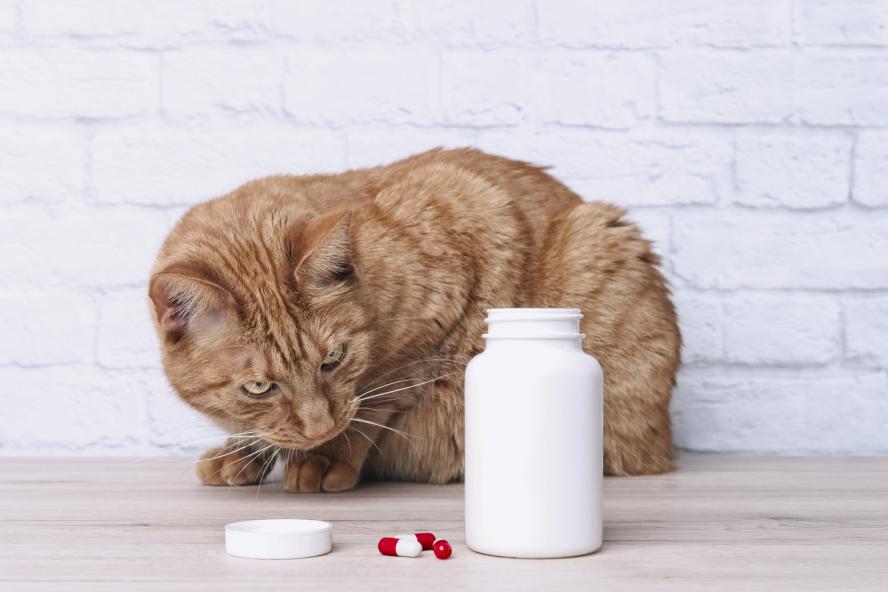-
About
- Leadership & Faculty
- News & Events
-
Admissions
-
Academics
- Graduate
- Advanced Clinical Training
- Continuing Education
- Academic Departments
- Academic Offices
- Simulation Experiences
-
Student Life
- Offices
-
Research
-
- Transformative Research
- Centers & Shared Resources
-
-
Hospitals & Clinics
- Emergency Care
- Hospital Services
-
Community Outreach
- Volunteer
Pet Poison Prevention Month
Ask the Expert

March is Pet Poison Prevention Month. We asked one of our experts, Dr. Elizabeth Rozanski from our Emergency Medicine & Critical Care Service, to provide suggestions for keeping your pet safe from toxins and poisons.
Protect your pet with these safety tips:
Keep medications, chemicals, cleaning, and laundry supplies out of reach from your pets.
Clean all antifreeze from the garage floor and driveway. One taste can be lethal to animals.
Carefully store handbags, backpacks, and visitor's bags where your pets cannot access them.
Medicines to be extra vigilant about around your pets:
- Rimadyl (Carprofen), a chewable medicine, tastes good to pets and can be toxic in large amounts.
- Ibuprofen (Motrin) for humans often has a sugary coating, and dogs like that smell.
- Acetaminophen (Tylenol) is deadly to cats.
- NSAIDs to relieve pain in humans (Naproxen) are deadly to dogs.
- Ivermectin at high doses can be fatal in dogs, particularly collies and other white-footed dogs.
Keep potentially toxic foods out of reach - particularly dark chocolate, grapes, and raisins.
Candy and gum with xylitol act like insulin in dogs, lowering blood sugar and causing liver damage. It is most common in gum, but it can also be in other foods/candy.
Don't leave empty snack bags lying around. Dogs can suffocate in them.
Keep your trash cans covered and secured. Garbage gut is common in dogs. If your dog gets into a trash can with spoiled or moldy food, it can cause severe stomach upset and even tremors.
If you use rat poison, keep dogs and cats away from it. It's also a good idea to know what is in the rat control product you're using beyond the brand name. The ingredients can vary and, if ingested, require different treatments.
Steps if you think your pet may have ingested a toxin:
- Call your veterinarian.
- Visit a veterinary emergency service.
- Don't self-medicate pets.
- Know how to provide basic first aid.
- Learn how to perform CPR on your pet.
- Call either the ASPCA poison control at (888) 426-4435 or the Pet poison helpline at (855) 764-7661. (there is a fee associated with both poison controls).
Elizabeth Rozanski, D.V.M., DACVIM (SAIM), DACVECC, is an associate professor in Cummings School's Department of Clinical Sciences and a member of the emergency medicine and critical care team at Henry and Lois Foster Hospital for Small Animals.
Department:
Foster Hospital for Small Animals